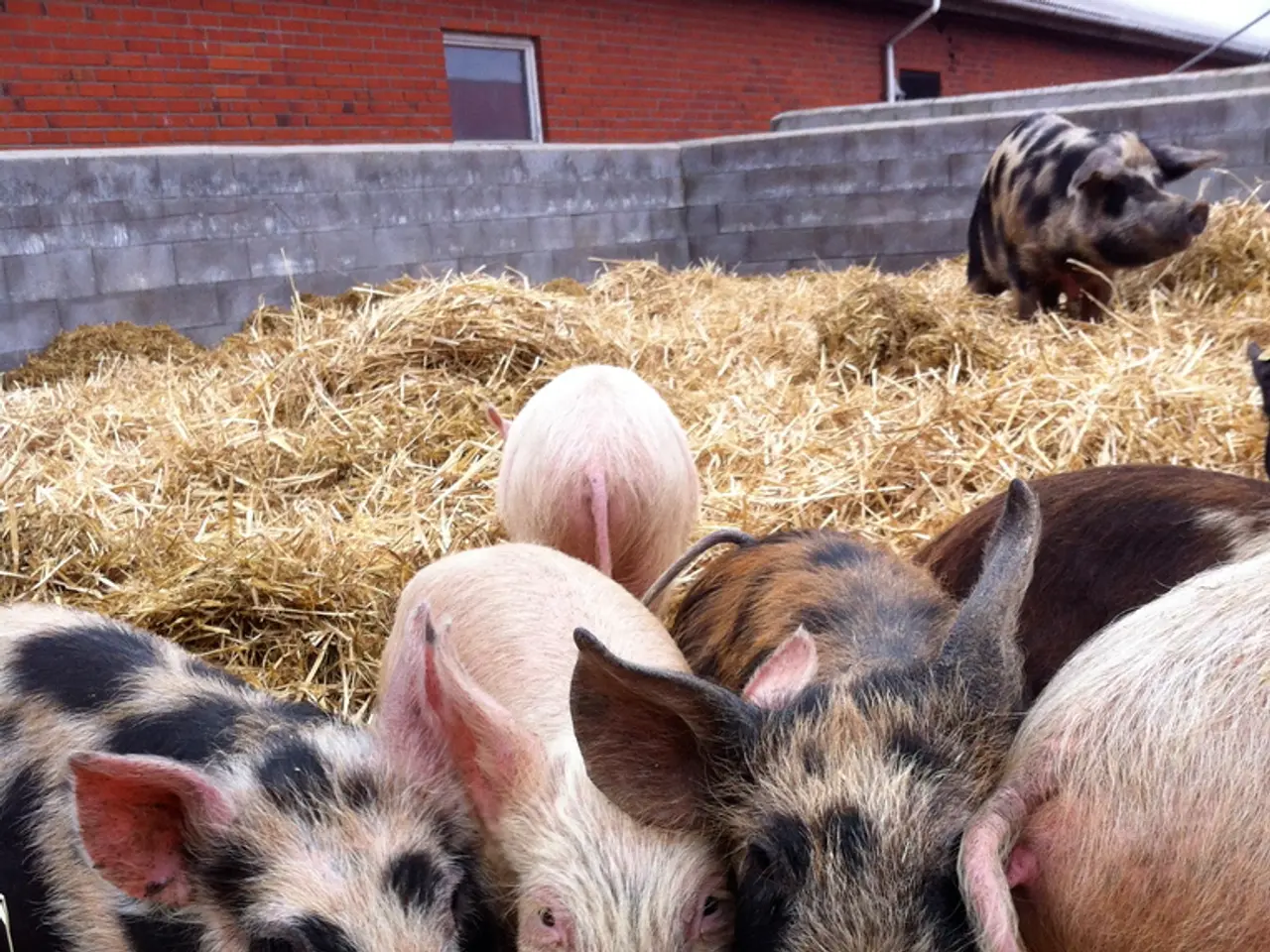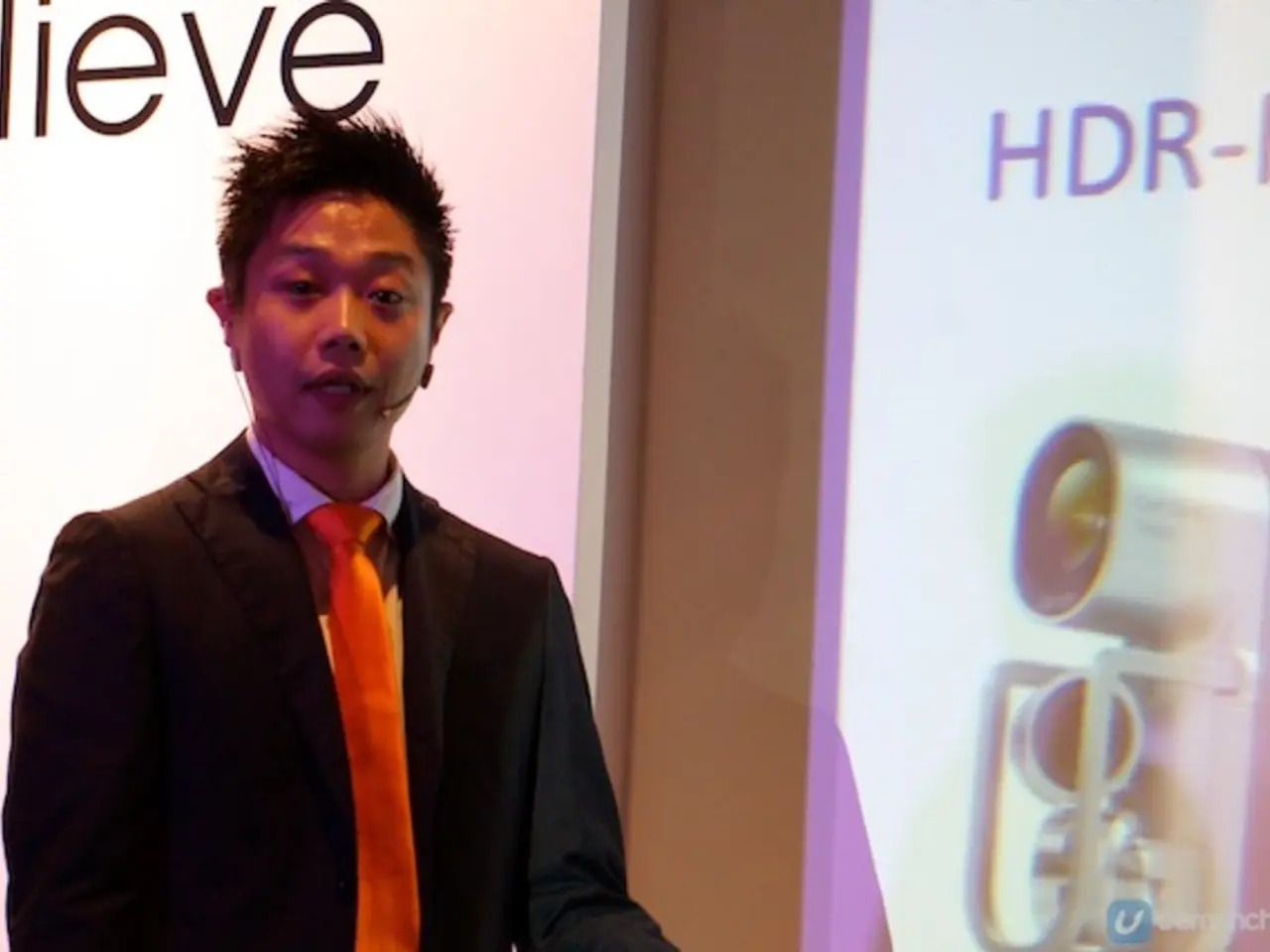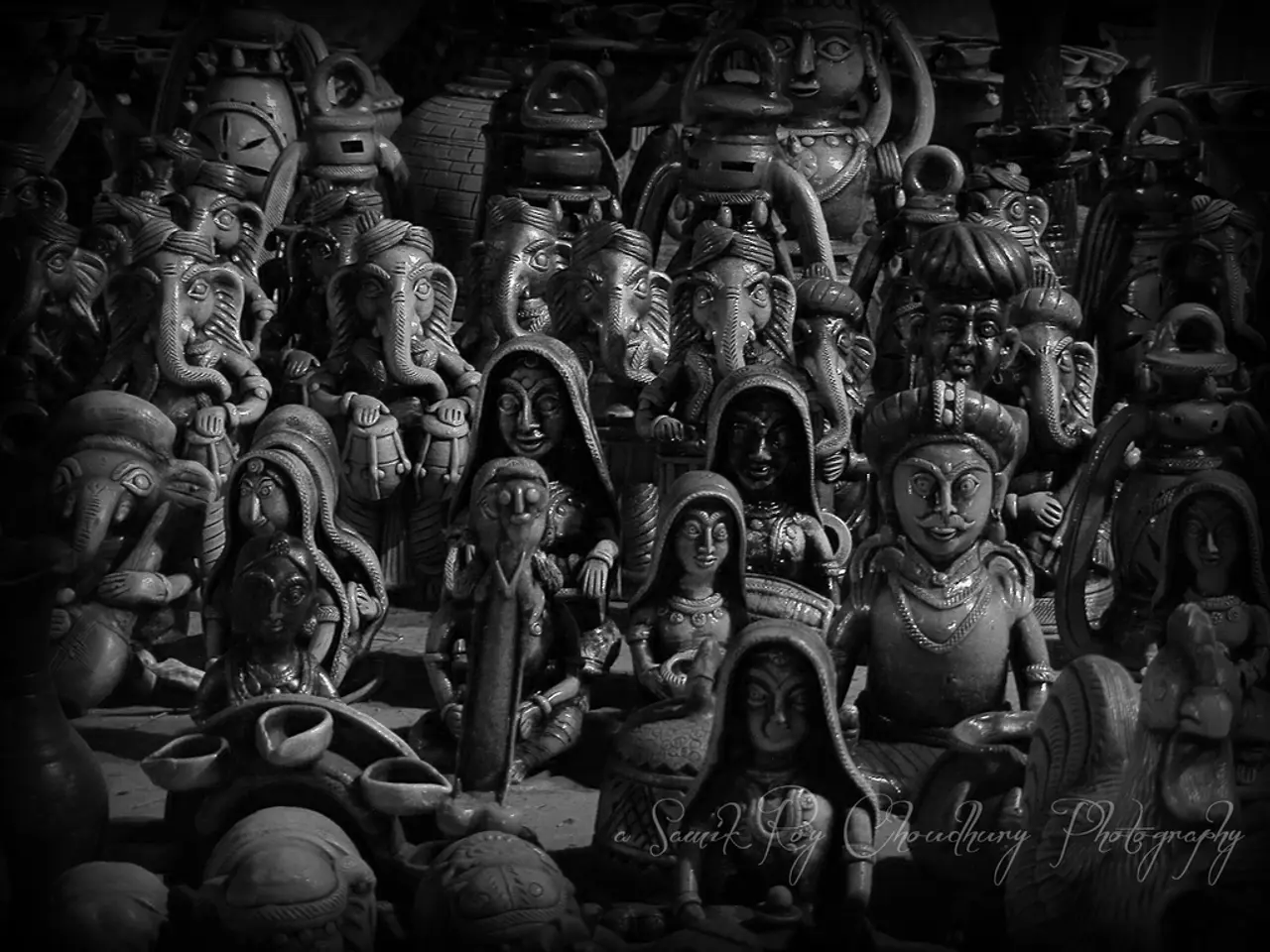Controversy erupts as American Eagle and Sydney Sweeney encounter criticism due to a controversial LinkedIn post, sparking further controversy
In the world of fashion advertising, a recent campaign by American Eagle has sparked controversy and intense debate. The advert, featuring actress Sydney Sweeney, has been criticised for its use of a phrase historically associated with celebrating whiteness, thinness, and attractiveness.
The ad, which prominently showcases Sweeney's blonde, blue-eyed features, has been interpreted by many as evoking white supremacist and eugenics-era ideals of beauty and genetic superiority. This has led to outrage, given the current heightened sensitivity around race, representation, and the legacy of eugenics in America.
Critics argue that the ad's phrase "genes are passed down from parents to offspring," paired with Sweeney’s European features, echoes discredited ideas from the early 1900s eugenics movement, which promoted racial hierarchies and discriminatory immigration policies. The ad is seen as tone-deaf due to its timing amid ongoing political debates about diversity, white supremacy, and systemic inequities faced by people of colour and marginalized groups.
However, some defend the ad as a simple jeans commercial, arguing that it has increased Sweeney's exposure. Yet, others call it a resurfacing of harmful, racially charged messaging, accusing it of celebrating a narrow and exclusionary beauty standard rooted in racial genetics. The backlash intensified after former President Donald Trump praised the campaign for being "anti-woke," politicizing the issue further and prompting a culture war discussion about brands' roles in social and racial representation.
American Eagle responded by emphasising that the ad was about jeans and confidence. However, the controversy remains a flashpoint about race, eugenics history, white beauty ideals, and how those concepts intersect with commercial advertising today. The debate also shows how quickly advertising campaigns can become politicized in the current social climate.
Notably, the original ad and its core messaging remained unchanged, and no formal public statement was issued. However, American Eagle did disable comments on posts related to the ad and swapped out visuals with alternative imagery, including a woman of colour on its latest Instagram post.
The limited-edition Sydney Jean sold out quickly, and American Eagle's stock rose between 10-18% in the days after launch. Despite the controversy, it seems the ad has been successful in generating buzz and sales for the brand. However, the long-term implications of the controversy for American Eagle's reputation and future advertising strategies remain to be seen.
The debate around the ad has not been limited to serious discussions. Singer Doja Cat mocked the ad on TikTok, adding to the ongoing conversation about the ad and its implications. As the debate continues, it is clear that the ad has touched a nerve and sparked important discussions about race, representation, and beauty standards in advertising.
[1] The Washington Post. (2021). American Eagle's Sydney Sweeney ad sparks backlash, debate over race and beauty standards. [online] Available at: https://www.washingtonpost.com/business/2021/03/01/american-eagle-sydney-sweeney-ad-sparks-backlash-debate-over-race-beauty-standards/
[2] The Guardian. (2021). American Eagle's Sydney Sweeney ad sparks controversy over eugenics and white supremacy. [online] Available at: https://www.theguardian.com/us-news/2021/mar/02/american-eagle-sydney-sweeney-ad-sparks-controversy-over-eugenics-and-white-supremacy
[3] CNN. (2021). American Eagle's Sydney Sweeney ad sparks controversy over eugenics and white supremacy. [online] Available at: https://www.cnn.com/2021/03/02/us/american-eagle-sydney-sweeney-ad-controversy-trnd/index.html
- The American Eagle ad, which promotes celebrity Sydney Sweeney, has been embroiled in a debate about race and beauty standards in pop-culture, with many critics arguing it echoes discredited ideas from the eugenics movement.
- Amid discussions around diversity and representation, the ad's focus on Sweeney's blonde, blue-eyed features has been interpreted as a resurfacing of harmful, exclusionary beauty ideals rooted in racial genetics, contributing to the ongoing discourse about celebrity roles in shaping pop-culture norms.







